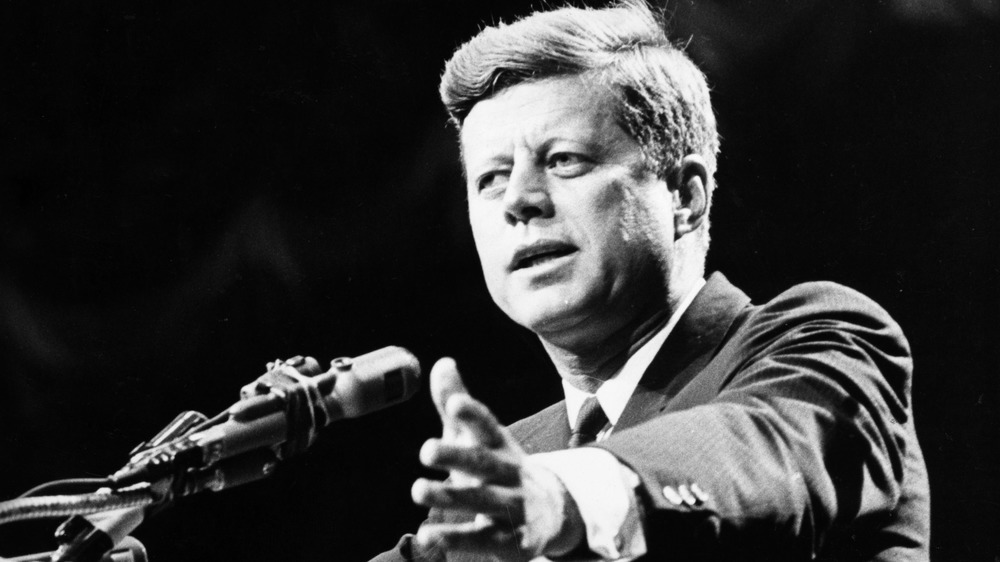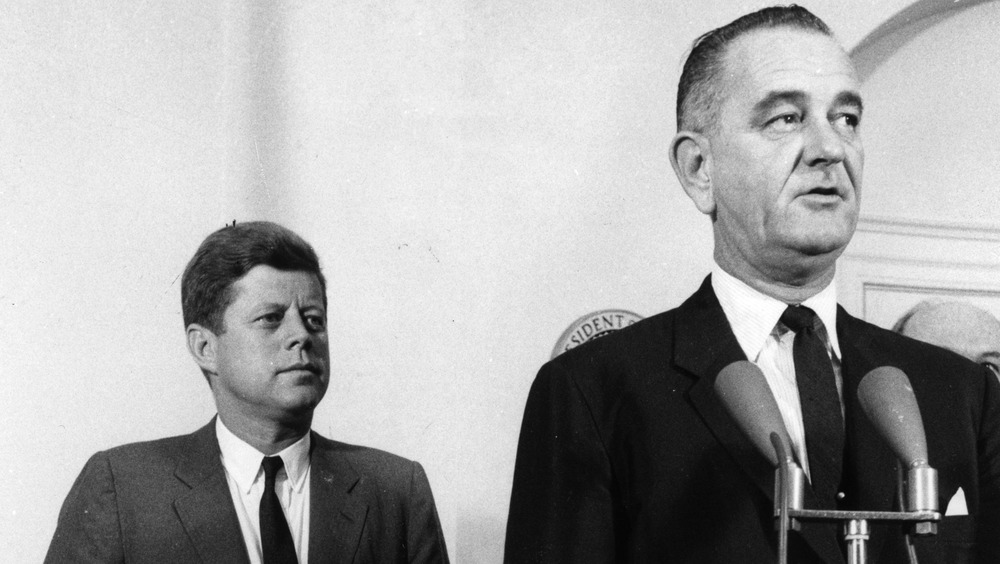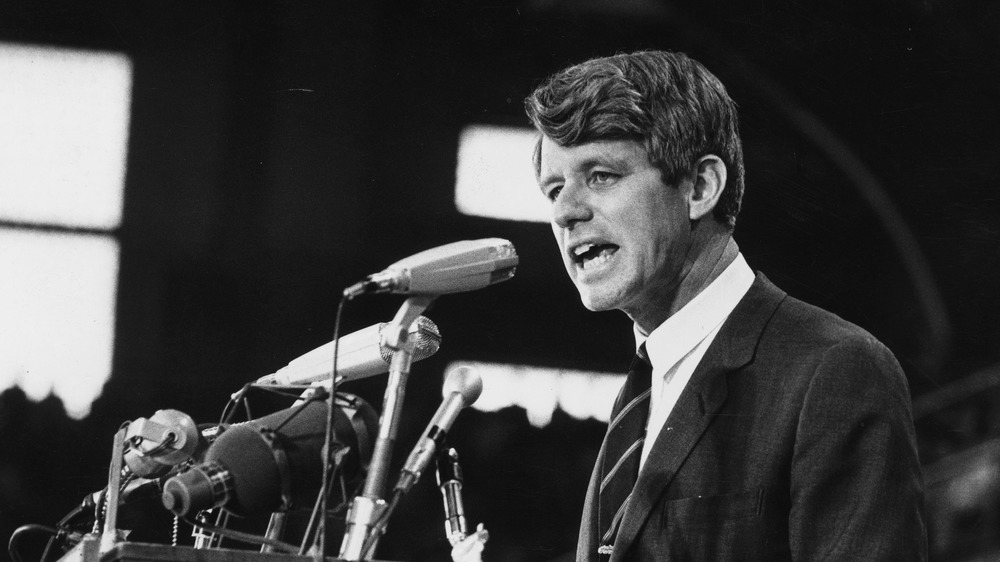Why The Kennedys Couldn't Stand Lyndon B. Johnson
When John F. Kennedy announced his candidacy for the Democratic presidential nomination on January 2, 1960, party leaders — and the nation as a whole — would have to wait several months before he would name a running mate. Many were hoping for an aspirational pick to match JFK — a young, charismatic, and promising politician. But at the Democratic National Convention in Los Angeles in July, it was 51-year-old Texas Senator Lyndon B. Johnson who would emerge on the ticket with JFK.
That choice was a mismatch in the eyes of many who regarded the two as at odds in most ways, but Kennedy made a political calculation that LBJ could help him win the South, where JFK was not in favor. For the two-and-a-half years LBJ served as vice president before the assassination of JFK, the president viewed him as an ineffectual underling who rarely shared his thoughts on important matters. "Jack would say you could never get an opinion out of Lyndon at any cabinet or national security meeting," JFK's wife, Jacqueline Kennedy, later said in an interview, according to ABC News. "Lyndon, as vice president, didn't just do anything. But it was all right. It was fine."
JFK wanted his younger brother, Robert F. Kennedy, to succeed him
However, it was more than a performance review that put Johnson at odds with the Kennedy family. Within the first two years of the Kennedy administration, the Kennedy family became increasingly concerned about the prospects of Johnson in the Oval Office. They hatched a plan that would position Robert F. Kennedy, JFK's younger brother and attorney general, to take the White House following JFK's presidency, according to University of Virginia's Miller Center.
At the time, RFK was increasingly treated as the second-ranking man in Washington behind his big brother, the president. That dynamic set up years of intense feuds between Johnson and RFK — and the Kennedy family, more broadly. "When this fellow looks at me," said Johnson of Bobby Kennedy during his time as vice president, "he looks at me like he's going to look a hole right through me, like I'm a spy or something," Robert A. Caro writes in his book, The Passage of Power.
Although LBJ did have plenty of reasons to think he was increasingly pushed to the outside of JFK's power circle, some of his problems were a direct result of his own feelings of inadequacies. "Bobby symbolized everything Johnson hated," said Kennedy aide Richard Goodwin, who later served in the Johnson administration, according to Joshua Zeitz's Building the Great Society. "He became the symbol of all the things Johnson wasn't ... with these characteristics of wealth and power and ease and Eastern elegance; with Johnson always looking at himself as the guy they thought was illiterate, rude, crude. They laughed at him behind his back. I think he felt all of that."
RFK became more combative after JFK's assassination
On November 22, 1963, when JFK was assassinated, Bobby resented that LBJ flew back from Dallas on Air Force One, instead of the vice presidential aircraft on which he arrived, according to Politico. "Our president was a gentleman and a human being," said RFK. "This man is not. ... He's mean, bitter, vicious—an animal in many ways."
Nonetheless, Bobby Kennedy, who was determined to win back his family's position of power, attempted to force Johnson's hand in naming him as his running mate in 1964. When that effort failed, RFK resigned and ran for a Senate seat in New York. That race proved more difficult than Kennedy had expected, reluctantly forcing him to ask LBJ to help him campaign.
In one last shot at RFK, LBJ signed into law a measure that would bar future presidents from naming relatives to the Cabinet. The congressman who introduced the nepotism provision insisted it was not written with Kennedy in mind, but was quickly referred to as the "Bobby Kennedy law," according to Roll Call.


